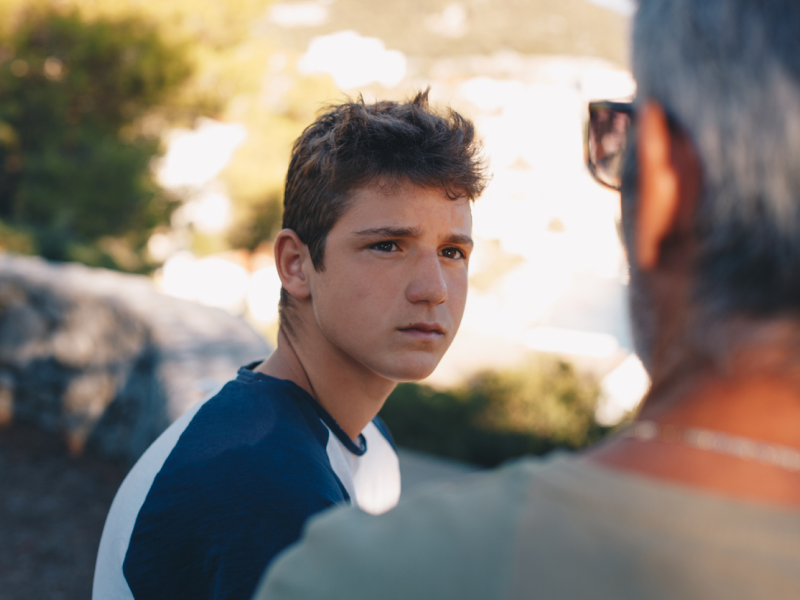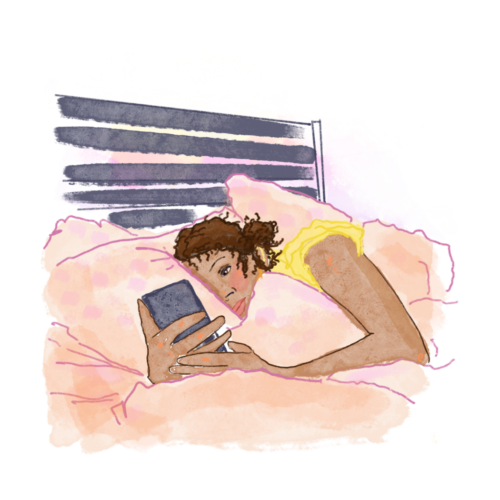
Table of Contents
You Should Know About the Father Wound

Written By: Alex Bachert, MPH

Clinically Reviewed By: Dr. Don Gasparini
February 9, 2024
5 min.
If your father was emotionally or physically absent or highly critical during your childhood, you may be dealing with this kind of trauma. Read on to learn about the father wound and how to cope.
Learn more about our Clinical Review Process
Table of Contents
Growing up, children rely on their parents to keep them safe. Fathers, stereotypically, are considered to be their family’s “providers” and “protectors.” So what happens if your father was disengaged or unavailable during your childhood? For some people, this can lead to a type of trauma called the “father wound” (sometimes referred to colloquially as “daddy issues.”)
“The father wound refers to a household in which a father is emotionally or physically absent. Or, if the father is in the home, they are highly critical of their children and may be physically or emotionally abusive,” said Kathleen Douglass, a Primary Therapist with Charlie Health. Below, we delve into what causes the father wound and how to overcome this type of childhood trauma.
What causes the father wound?
According to the 2022 U.S. Census Bureau, approximately one in four children across the U.S. are raised in households without a father. For some of these young people, not living with their father or having access to a positive male role model can contribute to the father wound. Other causes of the father wound include abuse, neglect, and having a strained or dysfunctional relationship with your father.
The father wound can also be based on intergenerational trauma, defined as consistent and persistent years of traumatic challenges within families across generations. “Mother and father wounds are often passed down from one generation to the next if not treated, and the cycle is not stopped,” explained Douglass.

We can help you heal from childhood trauma
Get virtual, trauma-informed care with other people who get it.
Father wound versus mother wound
The mother wound, and father wound are both caused by having a physically, emotionally, or psychologically unavailable parent, but the two types of trauma have different effects. “The mother wound tends to be about a lack of emotional safety, which prevents us from learning how to self-soothe and regulate our emotions,” explained Douglass. Conversely, “the father wound impacts self-image, worthiness, self-confidence and a sense of independence.”
Signs and symptoms of the father wound
Father wounds typically begin during childhood, but the consequences can continue into adolescence and adulthood if left unaddressed. For instance, research shows that children who grow up without a present father are more likely to drop out of school, spend time in jail, and develop behavioral health concerns.
Additional research suggests that having an absent father during childhood can negatively affect children’s social-emotional development, particularly by increasing aggressive or attention-seeking behaviors. The same study suggests that an absent father can increase risky behaviors among adolescents and contribute to mental health concerns in adults.
Below are some additional signs and symptoms of how the father wound manifests in childhood and adulthood.
Father wound in childhood
- Never feeling like you had your father’s attention or approval
- Feeling like your father disapproved of your choices, feelings, and behaviors
- Lack of affection or security from your father
- Feeling scared of your father
- Fear of abandonment
- Having a father who was physically or emotionally absent
- Having a father who was overly critical and controlling

Father wound in adulthood
- Low self-esteem, confidence, and self-worth
- Difficulty building and maintaining healthy relationships
- Difficulty regulating emotions
- Self-sabotaging behaviors
- Fear of rejection, betrayal, or abandonment
- Difficulty parenting one’s own children
- Being overly loose or rigid with boundaries
- Mental health conditions such as anxiety, depression, or addiction issues
Father wound and attachment theory
Attachment theory posits that people’s early interactions with their primary caregivers, such as a birth father or father figure, can impact their attachment style. “How our needs were met or not met in childhood affects how we relate to ourselves and others in relationships, friendships, parenting, and developing self-esteem,” said Douglass of the theory.
According to attachment theory, people who grow up with supportive and present caregivers are more likely to develop a secure attachment style. By contrast, those with less engaged caregivers (possibly including people with the father wound) are more likely to develop an insecure attachment style, such as an avoidant attachment style, dismissive attachment style, or anxious attachment style.
How to heal your father wound
Although the father wound is not an official clinical diagnosis, it’s still important to find ways to acknowledge and overcome childhood trauma. When left unmanaged, the father wound can affect people’s self-esteem, emotional well-being, and ability to maintain a healthy relationship.
According to Douglass, the father wound requires trauma-informed treatment to heal. In addition to therapy, here are other tips to help people process their trauma and cope with their emotions.
1) Recognize your father wound
Healing from the father wound is a slow and intentional process, starting with acknowledging the trauma. “If we do not have an awareness of this wound, which we often don’t until it causes issues for us, we may be on track to repeat the patterns that we learned as children in our adult families and in our parenting styles,” said Douglass.
2) Reparent your inner child
Healing your inner child is an opportunity to address your childhood trauma and heal painful inner child wounds. For example, Douglass explained that children with the father wound “tend to suffer from lower self-esteem and feelings of not being good enough or undeserving of love.” By taking the time to reparent their inner child, people can connect with their younger selves and offer the compassion, comfort, and reassurance they didn’t receive as a child.
3) Practice mindfulness and relaxation
Mindfulness practices like meditation and deep breathing can help you better understand your emotions, manage painful memories, and focus on the present. Some people also benefit from finding other activities that help them relax, such as painting, gardening, or long walks.
4) Be open to forgiveness
When healing the father wound, forgiveness means letting go of anything that is no longer serving you. It’s an opportunity to release anger, resentment, and any other toxic feelings that are preventing you from moving forward in life. You can document these feelings in a journal entry or (depending on the circumstances) take it one step further by letting your father know you forgive him.

Overcome the father wound with Charlie Health
If you’re struggling with the father wound or another source of emotional trauma, Charlie Health is here to help. Charlie Health’s virtual Intensive Outpatient Program (IOP) provides more than once-weekly mental health treatment for young people and families dealing with complex mental health conditions, including trauma. Our expert clinicians incorporate trauma-informed, evidence-based therapies into individual counseling, family therapy, and group sessions to help people feel their best. Fill out the form below or give us a call to start healing today.
References




